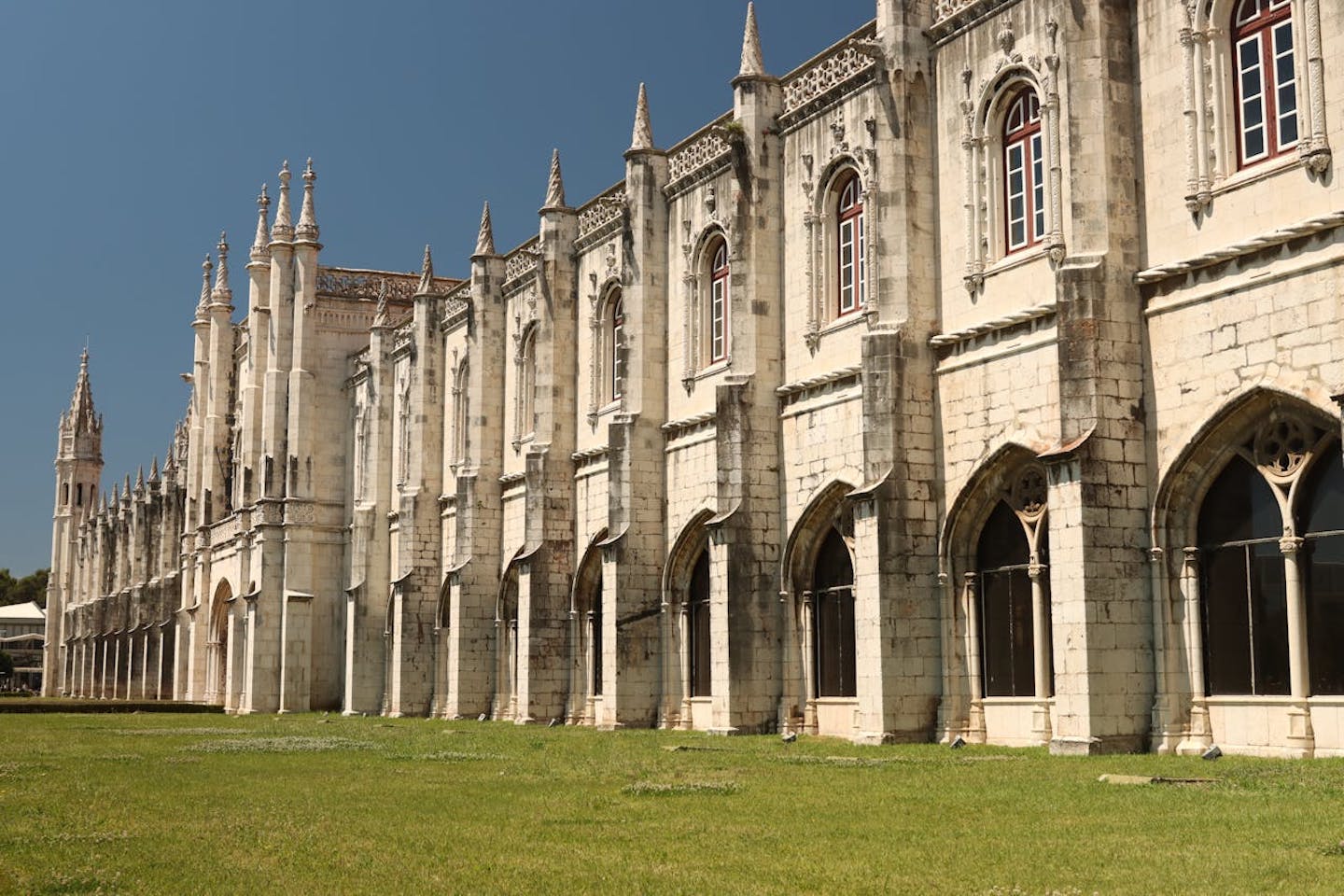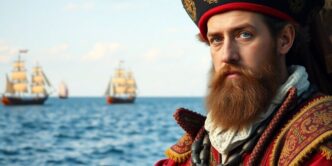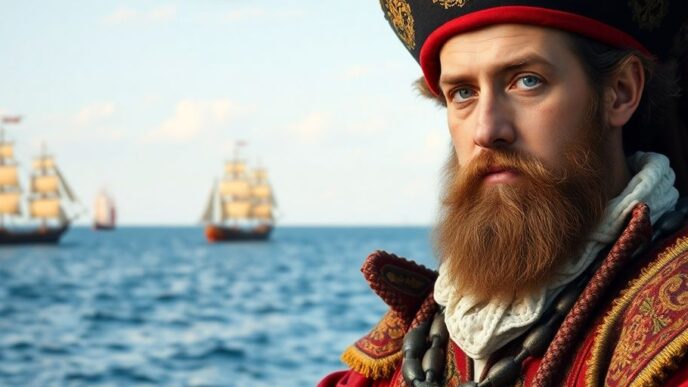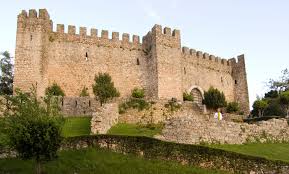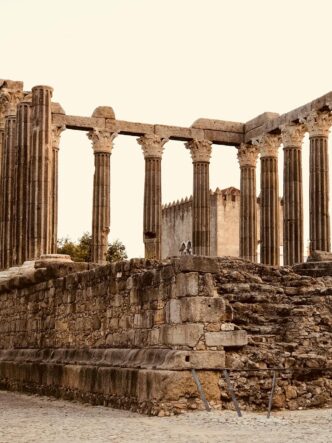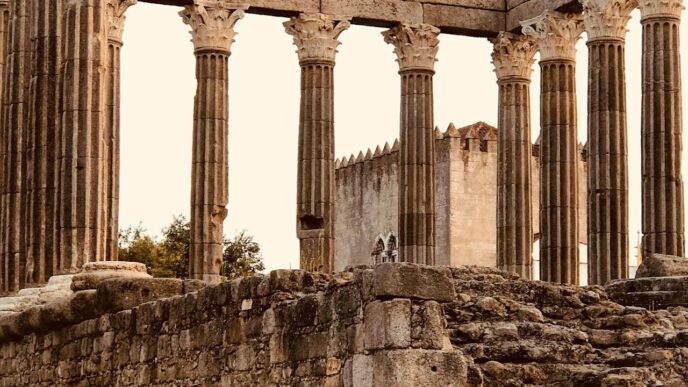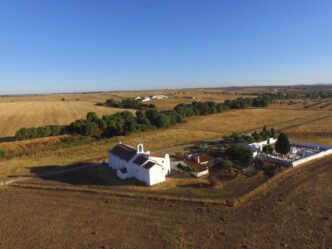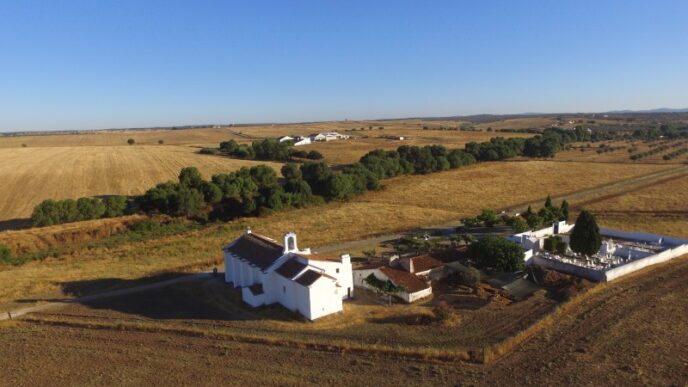Ancient Roots: Stone Age to Roman Era
Early Inhabitants and Settlements
The story of Portugal begins in the Stone Age. Early humans settled here, leaving behind ancient tools and cave paintings. Farming spread around 5500 BC, bringing domestic animals. By 2700 BC, the Bell Beaker culture emerged, known for its pottery. Long-distance trading started in the Bronze Age, around 2000 BC. The Phoenicians arrived between the ninth and fifth centuries BC, influencing local culture.
Roman Conquest and Influence
The Romans arrived in 139 BC, changing everything. They founded the province of Lusitania in 16-15 BC. Cities began to emerge, and Roman culture spread. The Roman Civil Wars around 80 BC had a big impact. By the first century AD, Portugal was fully integrated into the Roman Empire. Roman ruins still echo this era.
Legacy of the Romans
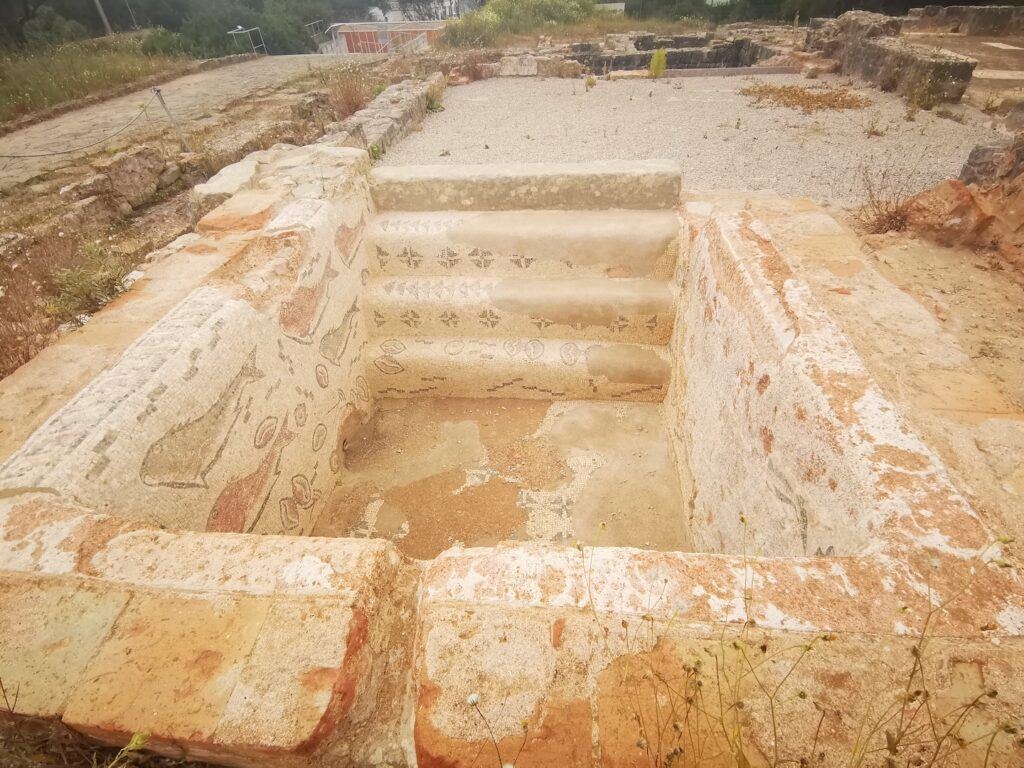
The Romans left a lasting mark on Portugal. They built roads, bridges, and aqueducts. Their language, Latin, influenced Portuguese. Even today, you can see their impact in architecture and place names. The Roman legacy is a big part of Portugal’s history.
Medieval Beginnings: Suevi, Visigoths, and Moors
After the fall of the Roman Empire, the Iberian Peninsula saw new rulers. The Suevi and Visigoths were among the first to take control. They settled in different parts of what is now Portugal.
Suevi and Visigothic Rule
The Suevi established their kingdom in Braga. They ruled from the early 5th century. By the 6th century, the Visigoths attacked and conquered the Suevi. The Visigoths, who had a kingdom based in Toledo, became the new upper class. They were landowners and warriors. Trade was mostly handled by Jews under their rule.
Moorish Invasion and Control
In the 8th century, the Moors invaded the Iberian Peninsula. They brought new culture and technology. Cities like Lisbon flourished under their rule. The Moors controlled large parts of Portugal for several centuries.
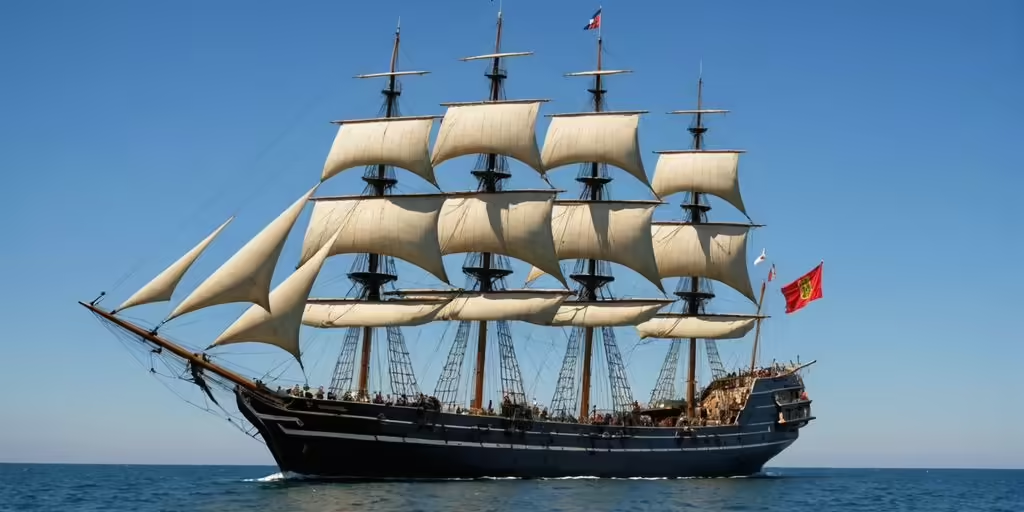
Christian Reconquista
The Christian Reconquista began in the north. Slowly, Christian forces pushed the Moors south. By the 12th century, most of Portugal was back under Christian control. This period set the stage for the formation of the Portuguese nation.
The Birth of a Nation: Formation of Portugal
County of Portugal
The County of Portugal was a small region. It was part of the Kingdom of Leon. It was given to Henry of Burgundy. He married Teresa, the illegitimate daughter of King Alfonso VI of Leon. This union laid the groundwork for Portugal’s future independence.
Independence from Leon
Henry’s son, Afonso Henriques, declared independence from Leon. He fought the Battle of Ourique in 1139. After his victory, he proclaimed himself King of Portugal. This was a bold move, but it set the stage for the nation’s future.
The First Kings
Afonso Henriques became the first king of Portugal. His reign marked the beginning of the Portuguese monarchy. He worked hard to expand and secure his kingdom. His efforts laid the foundation for what would become a powerful and enduring nation.
The Age of Discoveries: 15th and 16th Centuries
Exploration and Conquests
In the 15th century, Portugal became a world power. They started exploring unknown lands and seas. This era is known as the Age of Discovery. Portuguese sailors ventured far and wide, establishing trading posts and colonies.
Vasco da Gama and the Sea Route to India
Vasco da Gama was a key figure. He found a sea route to India in 1498. This was a huge achievement. It opened up new trade opportunities for Portugal.
Colonial Empire Expansion
Portugal’s empire grew rapidly. They set up colonies in Asia, Africa, and Brazil. The Treaty of Tordesillas in 1494 divided new lands between Portugal and Spain. This helped Portugal expand its influence globally.
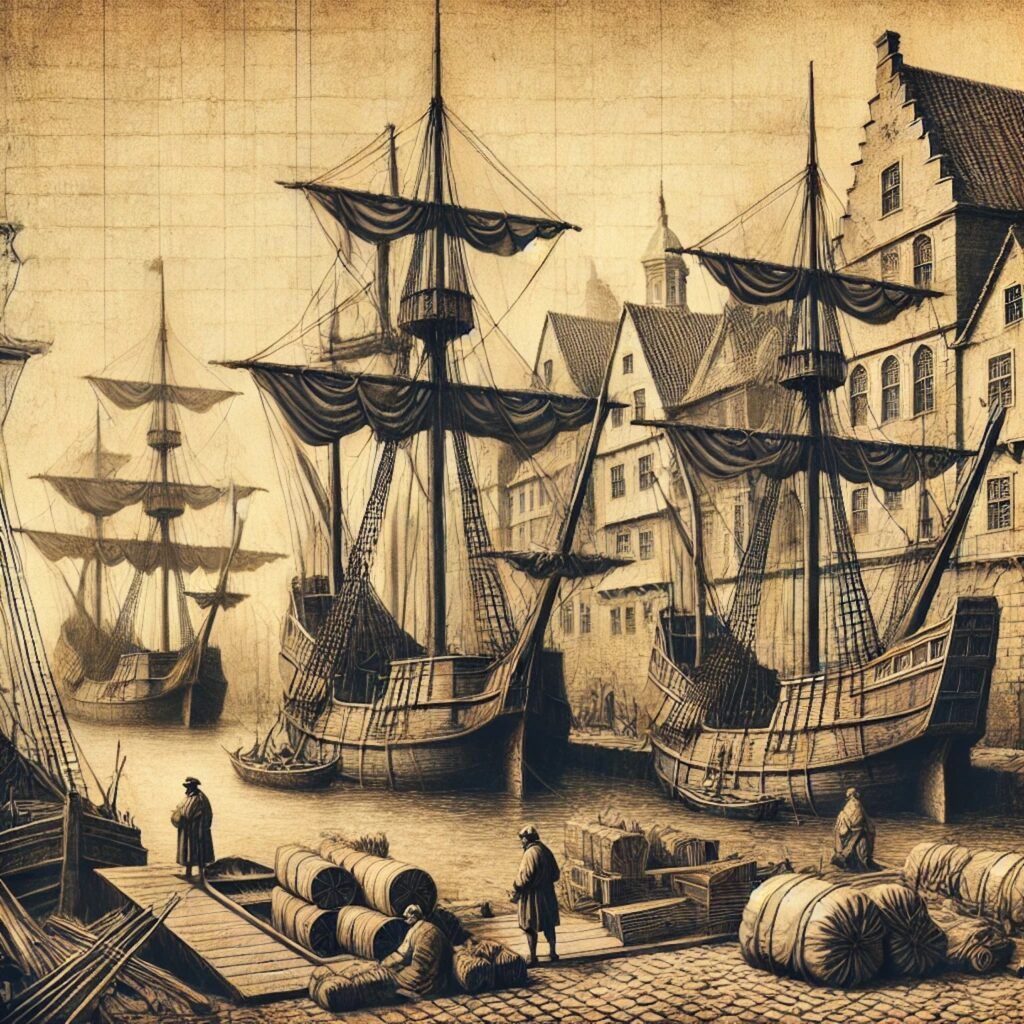
Union with Spain: 1580-1640
From 1580 to 1640, Portugal and Spain shared a monarch. This union, however, became less popular over time. In 1640, Portuguese nobles staged a coup in Lisbon. They deposed the governor of Portugal and made the Duke of Braganza King Joao IV. Spain did not recognize Portuguese independence until 1668, when the Treaty of Lisbon was signed.
The Braganza Dynasty: 17th and 18th Centuries
The Braganza Dynasty began in 1640, marking the end of Spanish rule. The new rulers worked hard to strengthen their control. They centralized power and improved the legal system. The Ordenações Manuelinas, a set of laws, were printed and spread across the kingdom.
During this time, Portugal saw great wealth from its colonies, especially Brazil. This wealth funded the construction of grand palaces in Mafra and Pombal. The Baroque style became popular in architecture and art. Portugal’s legacy in overseas territories spans exploration, colonization, and cultural exchange.
The Braganza rulers faced many challenges. They had to deal with economic issues and social unrest. Reforms were needed to keep the kingdom stable. The Marquis of Pombal played a key role in these changes. He helped rebuild Lisbon after the 1755 earthquake and introduced many economic and social reforms.
The Age of Enlightenment and Pombaline Reforms
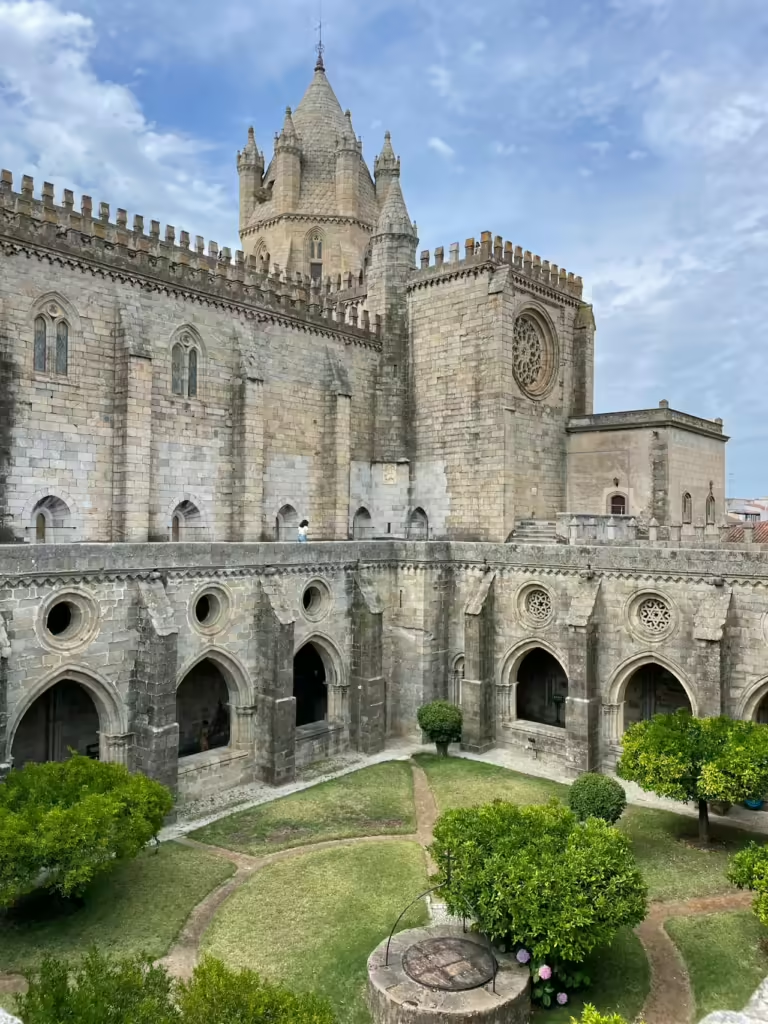
The Marquis of Pombal
Sebastião José de Carvalho e Melo, known as the Marquis of Pombal, was a key figure in Portugal’s history. He ruled Portugal from 1750 to 1777. Pombal aimed to make Portugal an enlightened despotism. He carried out several legal reforms and promoted trade. He also reformed taxation and created many state-funded schools. Pombal’s rule was marked by his efforts to reduce the power of the church and the nobility.
Rebuilding Lisbon after the Earthquake
In 1755, a massive earthquake struck Lisbon, causing widespread destruction. Pombal took charge of the rebuilding efforts. He implemented modern urban planning techniques and made the city more resistant to future earthquakes. His work in rebuilding Lisbon is considered one of his greatest achievements.
Economic and Social Changes
Pombal’s reforms extended beyond just rebuilding. He promoted economic progress by developing industries and improving trade. He also expelled the Jesuits from Portugal and confiscated their property. Pombal’s policies aimed to enhance autocracy, often at the expense of individual liberty. Despite his harsh measures, his era brought significant changes to Portugal.
19th Century Turmoil: Liberalism and Monarchy
The 19th century in Portugal was a time of big changes. The country was split between those wanting a strong monarchy and those pushing for a liberal constitution. This division led to a lot of political instability.
Napoleonic Invasions
Napoleon’s invasion in 1807 caused chaos. The Portuguese fought bravely under British command, but the country suffered greatly. Many areas were devastated, and the population fell sharply.
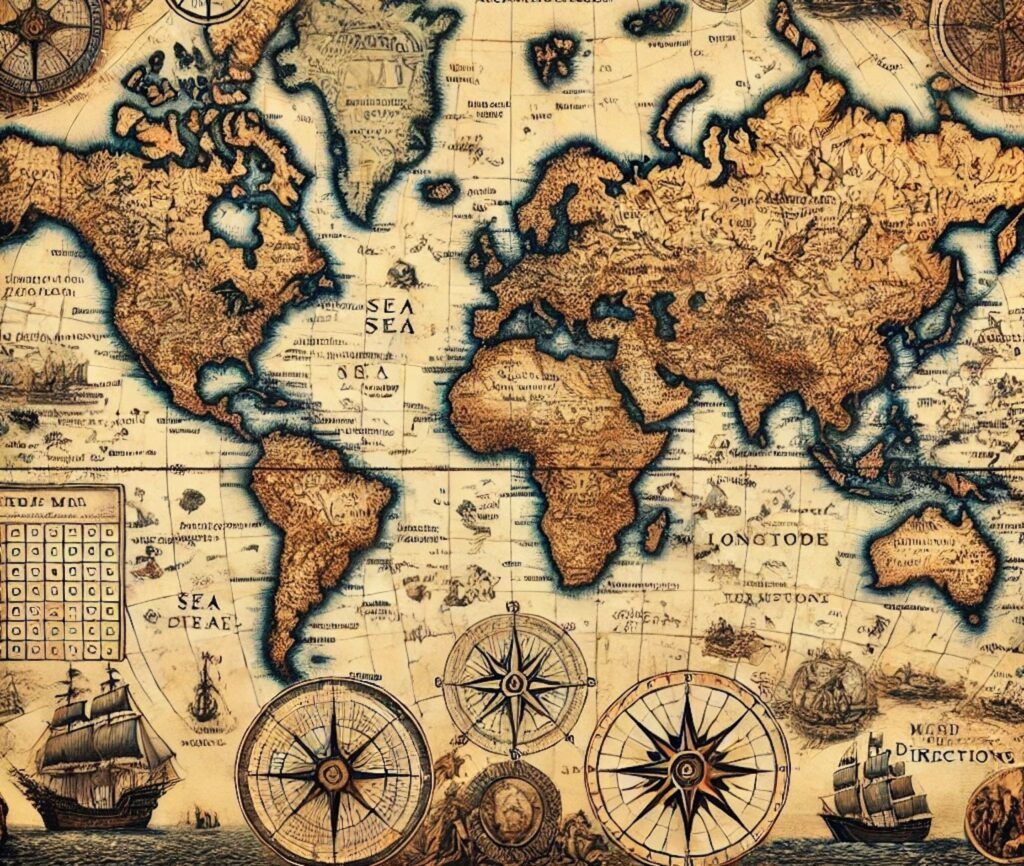
Liberal Wars
In 1838, liberals demanded a new constitution. Conservatives opposed it, leading to a civil war in 1846-47. The war ended only when foreign powers stepped in.
Decline of the Monarchy
By the end of the century, the monarchy was in trouble. Economic crises and political feuding made things worse. In 1910, the monarchy was replaced by a Republic, marking the end of an era.
20th Century: From Dictatorship to Democracy
The early 20th century in Portugal was chaotic. The First Republic brought instability and frequent changes in government. This period lasted from 1910 to 1926.
In 1926, a military coup ended the First Republic. This led to the rise of Salazar’s Estado Novo. Salazar’s regime was marked by censorship, political police, and economic control by a few groups.
The regime retained its characteristic traits: censorship, corporateness, with a market economy dominated by a handful of economical groups, continuous surveillance and intimidation of several sectors of society through the use of a political police and techniques instilling fear (such as arbitrary imprisonment, systematic political persecution and even assassination of anti-regime insurgents).
The dictatorship lasted until 1974. The Carnation Revolution ended it with little resistance. This peaceful revolution was supported by many, especially the urban middle class.
After the revolution, Portugal transitioned to democracy. A new constitution was adopted in 1976. This period is known as the Third Republic. The leadership of Soares was significant during this time.
Portugal’s journey from autocracy to democracy was challenging but transformative.
Modern Portugal: European Integration and Beyond
In 1986, Portugal joined the European Economic Community, marking a new chapter. This move opened new paths for the country’s future. Portugal left the European Free Trade Association, which it had helped found in 1960. The country adopted the euro in 1999. The Portuguese Empire ended in 1999 when Macau was returned to China, and officially in 2002 when East Timor became independent.
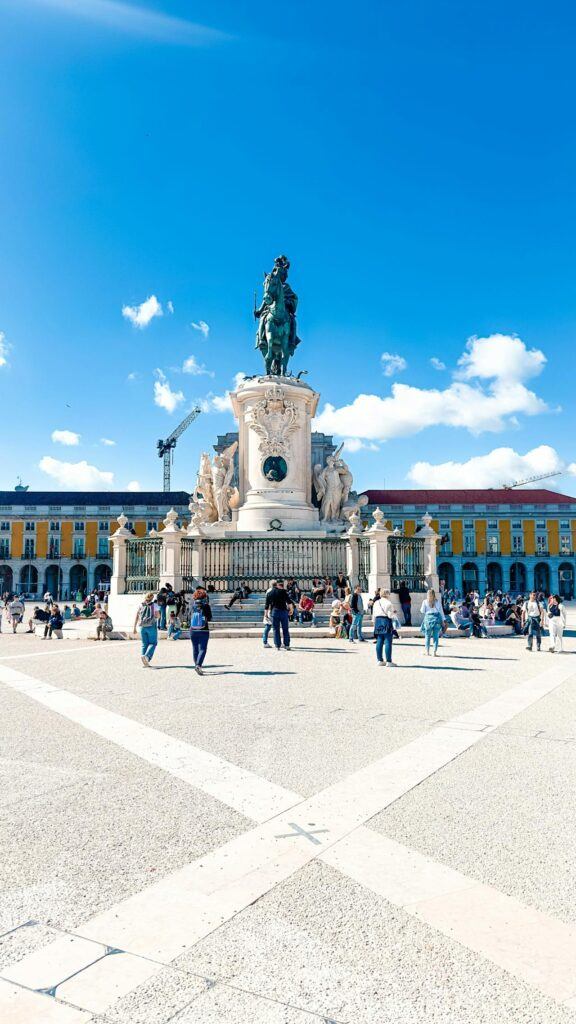
Joining the European Union
Portugal’s entry into the European Union (EU) in 1986 was a game-changer. It brought economic growth and structural modernization. The EU’s structural and cohesion funds played a big role in this transformation. By 2000, Portugal’s GDP per capita had reached 70% of the EU-12 average.
Economic Developments
Portugal saw robust economic growth from the late 1980s to the early 2000s. This growth was driven by the EU’s support and the rise of a new elite. However, there was a short crisis around 1992-1994. By 1991, GDP per capita had surpassed the 1973 level. The country continued to grow, approaching Western European living standards.
Cultural Renaissance
The late 20th and early 21st centuries saw a cultural renaissance in Portugal. Portuguese literature gained international recognition, with authors like Pessoa, Saramago, and Lobo Antunes making waves. The country also saw a rise in global interconnections, with Portuguese emigration playing a key role.
Frequently Asked Questions
What are the main periods in Portugal’s history?
Portugal’s history can be divided into several main periods: Ancient Roots (Stone Age to Roman Era), Medieval Beginnings (Suevi, Visigoths, and Moors), The Birth of a Nation (Formation of Portugal), The Age of Discoveries (15th and 16th Centuries), Union with Spain (1580-1640), The Braganza Dynasty (17th and 18th Centuries), The Age of Enlightenment and Pombaline Reforms, 19th Century Turmoil (Liberalism and Monarchy), 20th Century (From Dictatorship to Democracy), and Modern Portugal (European Integration and Beyond).
Who were the early inhabitants of Portugal?
The early inhabitants of Portugal were from the Stone Age. They arrived from Southern France before 10,000 BC and settled in the north. The Iberians settled in the north around 2,000 BC, and later the Celts arrived, bringing some Germans with them.
How did the Romans influence Portugal?
The Romans conquered Portugal and left a lasting impact. They built roads, bridges, and cities, and introduced their culture, language, and laws. The Roman influence is still visible in many parts of Portugal today.
What was the Christian Reconquista?
The Christian Reconquista was a period when Christian forces fought to reclaim land from the Moors, who had invaded and controlled parts of Portugal. This period ended with the expulsion of the Moors and the establishment of Christian rule in Portugal.
Who was Vasco da Gama?
Vasco da Gama was a famous Portuguese explorer. He found a sea route to India in the late 15th century, which helped Portugal become a major colonial power by opening up trade with Asia.
What happened during the Union with Spain?
During the Union with Spain (1580-1640), Portugal was ruled by the Spanish crown because of a dynastic crisis. There were many revolts and resistance movements, and eventually, Portugal restored its independence in 1640.
What were the Pombaline Reforms?
The Pombaline Reforms were changes made by the Marquis of Pombal in the 18th century. These reforms aimed to rebuild Lisbon after a devastating earthquake, and they brought economic and social changes to Portugal.
What is the Carnation Revolution?
The Carnation Revolution was a peaceful coup in 1974 that ended the dictatorship in Portugal. It led to the establishment of a democratic government and significant political and social changes in the country.

